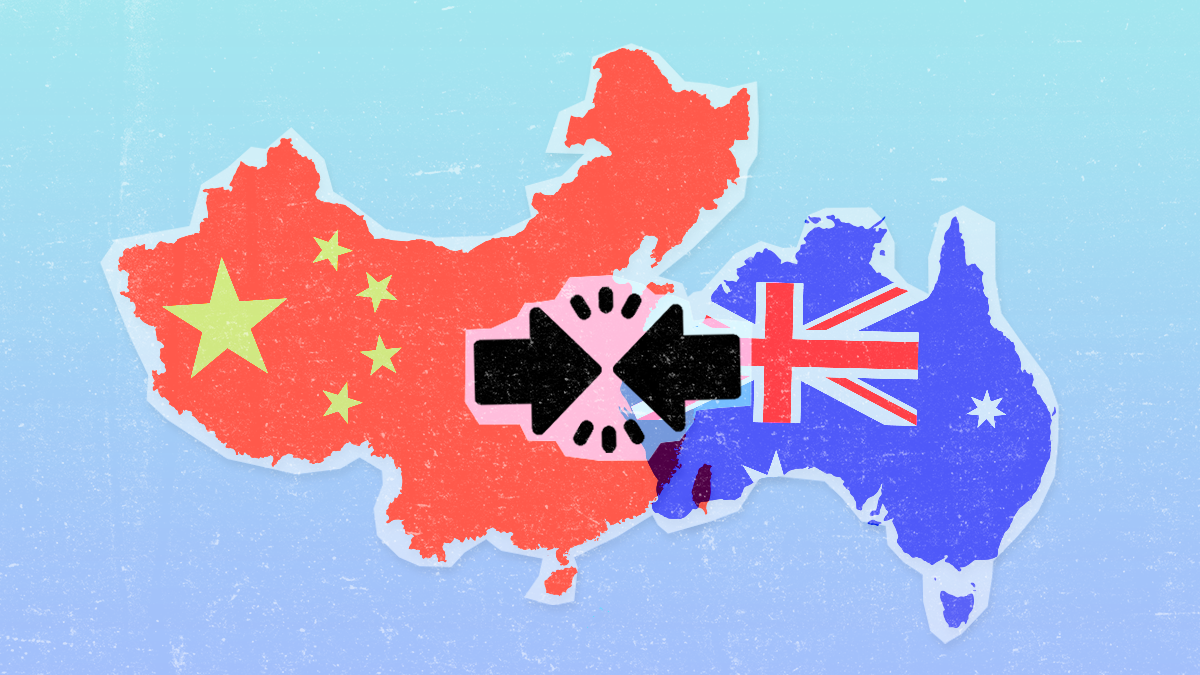Science & Tech
February 09, 2021
Australian journalist charged in China: Australian journalist Cheng Lei was detained last August in China for allegedly passing state secrets to foreign actors. Now, the reporter — who worked for Chinese state broadcaster CGTN when she was arrested — has been formally charged with a national security crime, though Beijing has unsurprisingly remained mum on the details. Her family (including two young children in Melbourne) say that Lei is innocent, while the Australian government has pleaded with Beijing to ensure due process. But Canberra's ability to lobby for Lei's release is surely hampered by its increasingly fraught relations with Beijing: Australia has criticized Beijing's meddling in Australia's internal government affairs, its spying activities, and called for a probe into China's alleged COVID coverup — prompting China to hit back with a series of devastating tariffs on Australian goods. The Chinese government has also targeted Australian journalists, and the last two Aussie reporters in mainland China recently fled at Canberra's urging. For now, Lei remains behind bars. Is the Australian government powerless to respond?
Palestinian election summit: Palestinian leaders kicked off a two-day summit in Cairo to discuss upcoming legislative (May 22) and presidential (July 31) elections, the first time Palestinians will head to the polls in 15 years. The Egyptian-brokered talks between longtime Palestinian foes — Fatah, which governs the occupied West Bank, and Hamas, the militant group that holds power in the Gaza Strip — aim to iron out procedural arrangements for the upcoming votes, including whose security forces will guard polling stations and which judicial body will resolve disputes. Palestinians have not held elections since 2006, when Hamas — designated a terror group by the US and the EU — won by a significant margin, leading to a shaky unity government and bloody power battle that saw Hamas seize control of the Strip. Fatah was eventually relegated to the West Bank, where President Mahmoud Abbas has since led a 15-year "emergency government." We're watching to see whether the polls will even take place at all, since previous elections have been scheduled only to be later rejected by those at the top.
WHO ends COVID probe in China: Wrapping up a hard-fought visit to investigate the origins of the coronavirus, a team of World Health Organization experts announced Tuesday that it's "extremely unlikely" that COVID leaked from a lab. That initial conclusion poured cold water on the conspiracy theory — promoted at the onset of the pandemic by former US President Donald Trump — that the virus was either engineered by or accidentally released from a Chinese lab, a claim most scientists have long dismissed. The WHO team said it is "most likely" the virus was transmitted to humans from an animal at a wet market, but possible it came from a different source, like from imported frozen food products, for instance. WHO says their probe is ongoing, but the inconclusive findings so far are surely a relief for Beijing, which has often pushed unscientific alternative theories that the coronavirus did not originate in China. We'll be keeping an eye on whether the full investigation comes out with any definitive findings, and if other countries will even trust the probe given perceptions of the WHO being too cozy with China.More For You
Hellenic coast guard performs SAR operation, following migrant's boat collision with coast guard off the Aegean island of Chios, near Mersinidi, Greece, February 4, 2026.
REUTERS/Konstantinos Anagnostou
15: The number of migrants who died after their boat accidentally collided with a Greek Coast Guard vessel in the Aegean Sea on Tuesday. Two dozen people were rescued.
Most Popular
Walmart is investing $350 billion in US manufacturing. Over two-thirds of the products Walmart buys are made, grown, or assembled in America, like healthy dried fruit from The Ugly Co. The sustainable fruit is sourced directly from fourth-generation farmers in Farmersville, California, and delivered to your neighborhood Walmart shelves. Discover how Walmart's investment is supporting communities and fueling jobs across the nation.
Workers repair a pipe at a compound of Darnytsia Thermal Power Plant which was heavily damaged by recent Russian missile and drone strikes, amid Russia's attack on Ukraine, in Kyiv, Ukraine February 4, 2026.
REUTERS/Valentyn Ogirenko
Democratic Alliance leader John Steenhuisen announced Wednesday that he will not run for a third term as leader of the liberal, pro-business party, after months of internal pressure over a host of controversies – including allegations, since cleared, that he used the party credit card for Uber Eats.
© 2025 GZERO Media. All Rights Reserved | A Eurasia Group media company.
